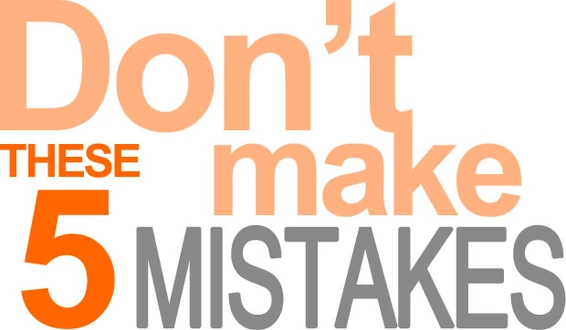
What is the Difference Between a Will and Trust?
February 10, 2019
5 Grave Estate Planning Mistakes that Might be Present in your Plan or your Loved One’s Plan
March 9, 2019
Which estate planning attorney you use is a very important decision. Unlike other areas of law, this attorney could be helping you and your family through their estate plan for decades and even for generations. Further, you must trust this person because often the fruits of their work are delayed, and you need to assure that the attorney is knowledgeable enough to guide you properly because often the plan is not used until you have passed away and it is too late to make mistakes. In a nutshell: Be sure you interview your attorney to make sure this is the right person for the job.
Here are three questions that you can ask to your potential estate planning attorney to make sure they are the right person for the job. Ask the attorney or the attorney’s assistant the following:
- What is your process for creating and implementing an estate plan? Your estate planning attorney should have a process that is concrete and easy to understand but is also flexible enough to accommodate the myriad of situations that may come up. If an attorney does not have a basic plan for executing an estate plan, they have not done enough plans to set up a solid system. On the other hand, every system should be flexible enough to accommodate for all the variations that come up. Every family is so different. Likewise, every family’s estate plan will be different. That said, if the attorney does not have a set process for getting work done, they have not set up a system that will allow them to focus on the intricacies of your plan.
- What are the pros and cons of using the different estate planning tools available? (i.e. wills, trusts, powers of attorney, health care documents, etc.) An attorney who knows his stuff should know what the benefits and risks are to each type of planning document so that they can craft a plan that uses the best tools for your situation and so that he or she can use those tools in a way that minimizes the risks and heightens the benefits as much as possible. For example, here in California, avoiding the hassle and expense of probate is a big plus to creating a trust. Some states, however, have better processes for administering estates through the court system. The attorney should be able to use this knowledge to create a plan that is right for the complexity in your family and complexity in the assets that you own.
- How does your office handle "funding" the estate plan? This may be a term that you are unfamiliar with. Titling assets to match and work with your estate plan is fundamental to creating the best plan for you and your loved ones. Many attorney’s do not focus on creating the whole plan but leave you to do this on your own, while others are integral in completing the funding for you. In our office we allow our clients to choose how involved they want us in their funding. If you want us to create an estate plan for you and you do the work of transferring assets so that they work with your plan, you can do that. We will even provide instructions to help you fund your estate plan. If you would like us to wrap your plan in a pretty bow and do all the funding for you, we can do that as well. Often this is the part of the estate plan that will make the fees vary the most.
Estate planning is an area of law that can dramatically affect your loved ones for years, decades and even generations. It is important that you ask some questions and interview your possible attorney to make sure he or she is competent and ready to handle your estate needs.

